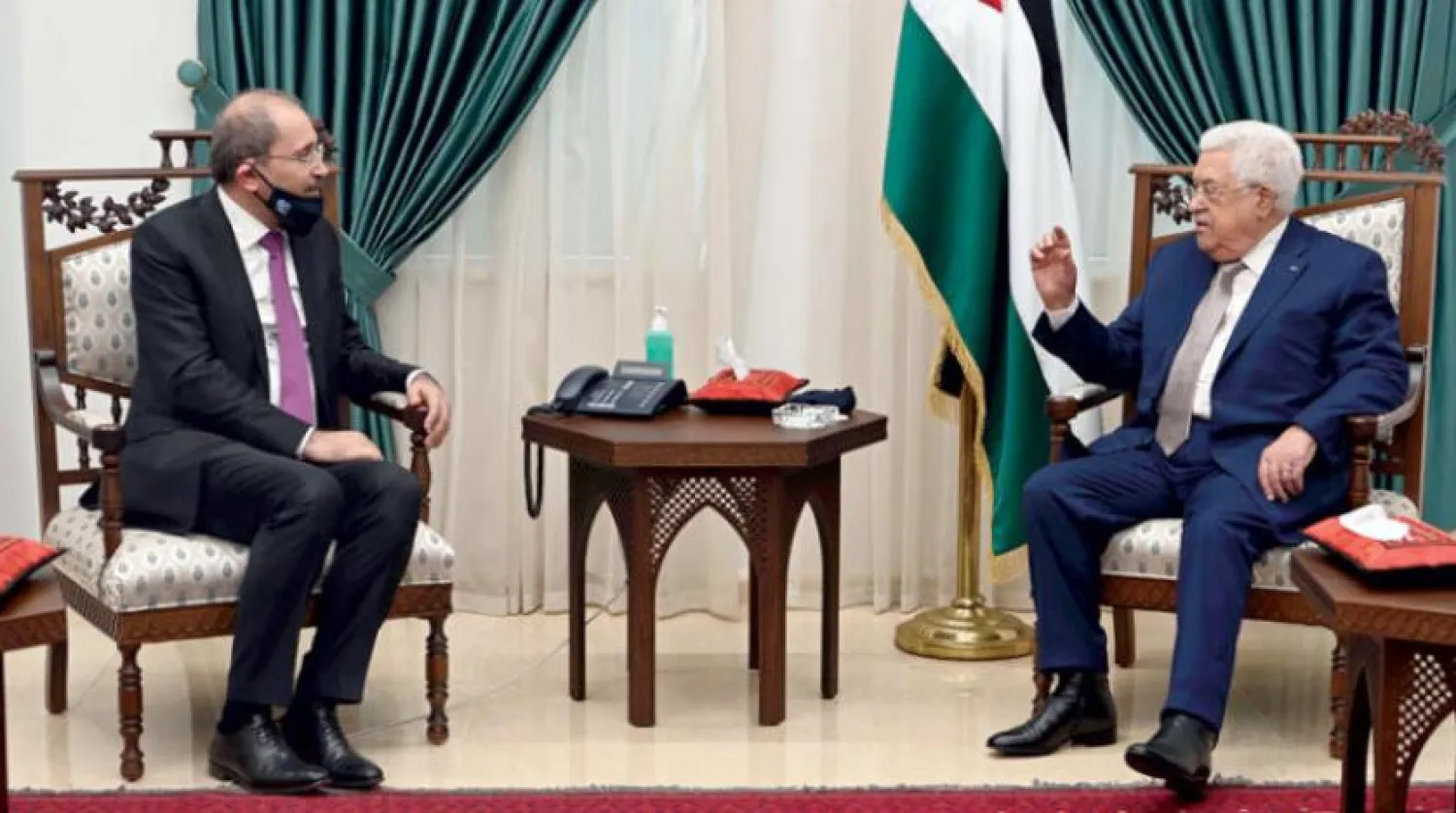The Jordanian Foreign Minister, Ayman Safadi, conveyed a message from Jordan’s King Abdullah II to President Mahmoud Abbas on Thursday.
This came during his unannounced visit to Ramallah, as part of the ongoing coordination and consultation process against Israel’s plan to annex large parts of the occupied Palestinian territories.
Following his meeting with Abbas, Safadi and his Palestinian counterpart Riyad al-Maliki held a joint press conference, in which the latter said talks focused on coordinating joint efforts and preventing Israel from implementing its annexation plan.
“Our Jordanian brothers are making strong and brave efforts all over the world to prevent Israel from going ahead with its plans,” Maliki noted.
He pointed to King Abdullah’s contacts with the US Congress and various committees, as well as Safadi’s actions at various levels, stressing that these helped mobilize an international stance against this plan.
The Minister further explained that discussions between Abbas and Safadi were important.
“Parties affirmed the State of Palestine’s readiness, under Jordan’s support, to negotiate based on the international legitimacy and UN references.”
“I conveyed Jordan’s permanent historic position to stand with our Palestinian brothers and their right to freedom and to establish their Palestinian state with Jerusalem as its capital,” Safadi stressed.
“We have said in the past that annexation means that Israel had chosen conflict over peace and it alone bears the responsibility of its decisions,” he added, describing the annexation issue as “an unprecedented danger to the peace process.”
“Consequences [of the annexation] are not only on the Israeli-Jordanian ties but also on the entire peace regional efforts,” Safadi said.
“Annexation would kill the two-state solution and destroy all the foundations on which the peace process was based. It will deprive the residents of the region of their right to live in peace and stability.”
The Kingdom will move forward in supporting Palestinians and “protecting the region from the consequences of a long and violent conflict if Israel annexes one-third of the occupied West Bank.”
“The Palestinian cause remains our central concern, and Jordan was and shall remain committed to every possible effort and everything it can to support our Palestinian brothers,” he added.
The Foreign Minister affirmed that his country is “now concentrated on preventing annexation and creating the possibility of returning to serious and effective negotiations.”
Sources told Asharq Al-Awsat that Amman’s has expressed full support for the Palestinian Authority’s positions against the annexation, but it also demanded that the PA waits and gives more time before making irreversible decisions.
Jordan wants “more time for diplomatic efforts to prevent annexation and to resume the political process,” sources said.









